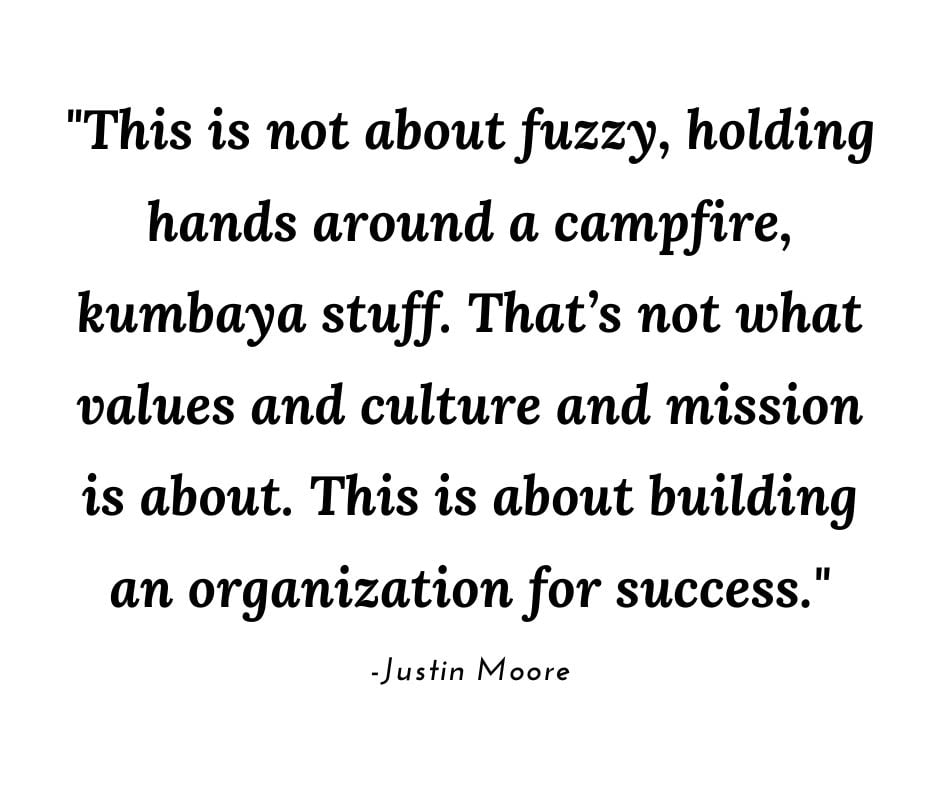“Company culture refers to the attitudes and behaviors of a company and its employees” (Careers). Whether you have sat down and really defined your company’s culture or not, your company does, in fact, have a culture. It’s the steady hum in the way you perform work, and it’s in the way your employees interact with each other. Despite, making it a point to define and emphasize your company culture can make a world of a difference in the workplace.
Whether it comes to hiring, training, and retaining employees, or even refocusing on your priorities and goals, a well-defined company culture is a great device to refer to for clarity and direction. In this blog post, we will dive into why you should define your company’s culture and just how to do so.

Reasons for a Company Culture
Hiring for Fit
You can teach someone a skill set, but you can’t teach them kindness, honesty, or integrity in their work. Therefore, hiring people who fit in your company culture can make a huge difference in how your clients are treated, how efficiently work is done, and how employees interact with each other.
Additionally, when your hiring process is led by your company culture, new hires will more naturally fulfill your expectations. You will build a culture of people who are motivated to come to work and who are eager to do their best on the job.

Higher Productivity
Having a staff that reflects your company’s culture will lead to an increase in productivity. In a room of people united by shared values, it becomes easier to understand each other— the floor opens for a freer exchange of ideas. Instead of being distracted by or torn down by teammates, employees become more motivated to complete projects and share their thoughts.

More Room for Fun
Having fun at work is necessary to building a positive work environment, as fun at work increases morale and decreases stress. As a result of increased productivity, there’s more room for fun. Additionally, not only is there more time for pleasure, but the work itself can be perceived as more enjoyable by you and your staff due to being around like-minded individuals.

Increased Retention and Attendance
Company culture can reduce the turnover rate of your staff. If you build a culture of people that stand together, they are less likely to be absent from work, and subsequently, more likely to want to stay and work for your business.
Road Mapping for Success
It’s difficult to know where to start when it comes to implementing changes, beginning new projects, or even carrying those in-progress projects to finish. Having a well-defined company culture can help you out of those ruts and see things in a new light.

How to Build a Company Culture
Identify Your Company’s Culture
“Culture and values are identified, not created,” says Dexcomm’s president, Jamey Hopper. Though it might take some time to really examine your company and think about which values are most important to you, you can always play with what verbiage you use and how its structured in the future. Remember—your company’s culture has always existed, so it’s a matter of pinpointing them and writing them down; you don’t have to pull them out of thin air.
For example, being a communications service, Dexcomm’s company culture can be simplified into these three values: concern for others, compassion, and personal growth. We found that our best agents exemplify a great concern for others and extend compassion to each caller, no matter how big or small their need may be. Additionally, personal growth was something we found to be experienced by each Dexcomm employee, but also a trait that is necessary to thrive as an employee here. Within these three core values are a variety of other traits that make up who we are and what we expect from all of our employees.

Implement Your Company’s Culture
Once you’ve identified your company culture, next is the most important part: implementing it. This is when you take the necessary steps to hire, evaluate, and promote based on your newly established company culture. Ask probing questions to applicants to see if they’re a value fit for your company. Promote your staff based on the way they exhibit your culture in their work. It is during this step that you begin to really see the effects of your company culture in action.
Overall, make it a point to consistently remind your staff of your core values and reward them for working in accordance with them.

Emphasize Your Company’s Culture
It’s easy to identify and build a beautiful company culture and then let it collect dust, forgotten and dismissed as a mere motto to your business. Don’t let this happen!
Place physical reminders of your company culture throughout your office, or supply staff with little cards filled with your values. Turn to those words when it comes down to figuring out the “how’s,” “what’s,” and “why’s” of sticky situations. There are solutions in your company culture, right under your nose, waiting to be explored.



.png)

